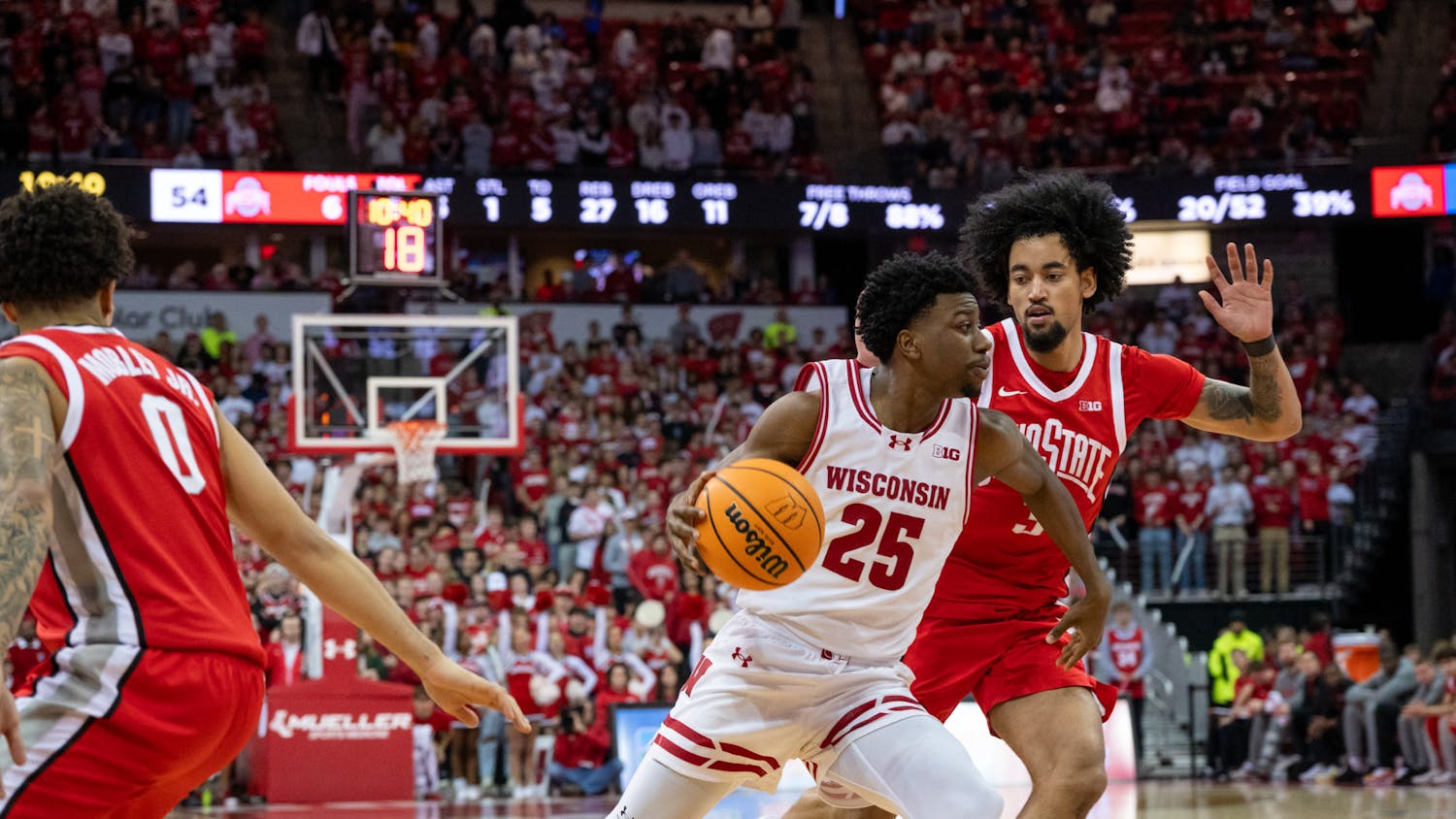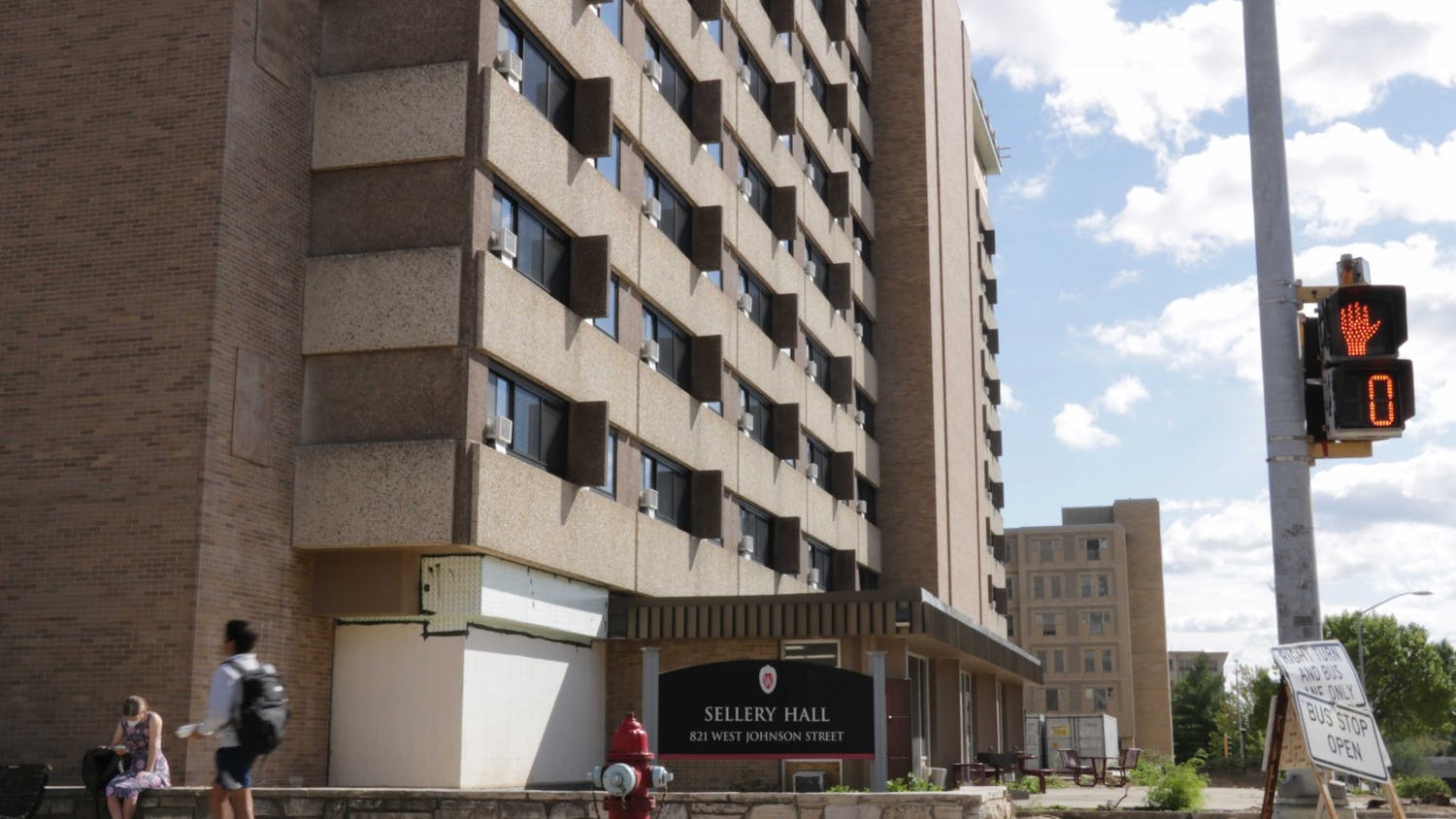WASHINGTON—A group of 14 UW-Madison students piled into a nine-person van this weekend and crossed the country to join nearly half a million people near the Capitol building for a solidarity march meant to unite the world in social justice movements.
United States citizens and individuals from other countries, young children and elderly folks, various genders and all races were present at the Women’s March on Washington Saturday. Attendees showed support for women’s rights—which speakers said are merely human rights—and spoke out against controversial statements made by President Donald Trump.
Similar women’s marches took place in 370 cities and six continents, according to event organizers at the march.
Joanna Finstad, a UW-Madison Veterinary School student, coordinated a ride-share with the students that signed up in time. She said she combined her motivation to attend the event and her planning skills to organize the trip, which she said were important for many reasons.
“I think [undergraduate] students are the future,” Finstad said. “Getting this generation motivated and getting them passionate is what’s going to change things. So, if there were students that wanted to go I wanted to make sure I was able to help them do that.”
The group made it through a car ride that lasted more than 13 hours just in time for the pre-march rally. Hundreds of people already filled the space upon their arrival, many holding read phrases such as, “You work for us now,” and “I can’t believe I’m still protesting this.”
Four of the UW-Madison students that rode in the van identify as Muslim American and said they were representing their respective, and often underrepresented, cultures. One of the students, UW-Madison junior Sara Easa, said she had been worried about “white-washing” of the event, but was pleased to see diversity in the speakers and apparent intersectionality in many of the posters.
Another student traveller, junior Zahra Bashir, said she came to represent and unite with both women and Muslim communities.
“[After the election] it took me a while to understand that I’m not alone, and today clearly represented that,” Bashir said. “Everyone was there because they are going to fight. There’s so many women that feel the same way I do, and we’re here to fight for what’s right. I’m not scared anymore. Now, I say ‘bring it on.’”
Easa made similar statements about coming together as a community.
“Women can’t move forward unless we acknowledge the problems that all women face,” Easa said. “Some women walk in fear because of some aspects of their identity that other women don’t ever have to experience. I think it’s good that feminist issues are being recognized more by communities.”
The rally included celebrity speakers and social justice activists, starting off with actress America Ferrera. She spoke about Americans protecting one another, and said that the people of the country, not the president or Congress, make America. Other speakers included President Rhea Suh of the Natural Resources Defense Council, who co-sponsored the event along with Planned Parenthood, which actress Scarlett Johansson told a personal tale of in her speech.
Support for Planned Parenthood, along with legalizing abortions and women’s rights in general, were major topics throughout the day. Dozens of women voiced their reasons for favoring the program, and men as well.
One male marcher, Tony, said he had three reasons for holding a pink, Planned Parenthood poster during the march: his mother, his daughter and his wife.
“It’s important because [the government is] trying to deny our freedom,” Tony said. “As John Lewis said, if you see something wrong, you need to speak up.”
Hundreds of men marched along with Tony in solidarity with women in their lives, or for human rights, including UW-Madison Veterinary School student Mitch Thomas and sophomore Ali Khan, who were in the group of UW-Madison students who travelled to the capital city.
Khan, who serves as Associated Students of Madison’s Chair of the Equity and Inclusion committee, said he gained a sense of understanding of women’s rights, as well as a feeling of pride for being a part of history.
“I was excited to come because as a gendered male because it was a great opportunity to show that people like me, that are Muslim American men that have a stereotype of being oppressive to women or misogynistic, are represented in ways that show that we too are feminist and that we get that from our religion and culture.”
Thomas said that he also attended the march in order to show support for a different group’s individual rights.
Attendees showed support for these rights by wearing knit caps called “pussyhats.” Each piece of headwear was handmade by an American woman and shipped to the buyer in time for them to wear it to the march. They are styled to have two pointed sections on each side of the hat in order to make them look like cat ears. Each cap was made with pink yarn to go along with the traditional, feminine color and idea of the Pussyhat Project.
One marcher, Lindsey Baynham, said she received hers from the owners of the home she was staying in while in Washington. She was proud to wear her pussyhat, which had been shipped from Dallas, Texas.
“There’s so many different groups of people here represented: people who feel oppressed, who don’t feel heard,” Baynham said. “Just to look around and see all the different signs that are represented and all the stories and lives that are represented is so important."
Also featured among the lineup of social justice leaders was Gloria Steinem, a renowned feminist activist, who has not marched since she walked with women in the fight for women’s rights to vote. An upcoming activist following Steinem’s generation took the stage later—six-year-old Sophie Cruz spoke about immigration, accompanied by her Hispanic family. She delivered her speech in both English and Spanish.
Politicians, including the Mayor of Washington D.C. Muriel Bowser and California Senator Kamala Harris, also appeared on the stage, emphasizing that women’s issues are, like the economy and education, all human’s issues.
Musical performances were placed between every few speeches, several of which showcased cultural pieces, from Native American tunes to a female rapper donning a hijab. The end of the rally featured surprise performances from Alicia Keys and Madonna.
The rally lasted nearly five hours, which was two hours longer than the organizers originally anticipated.
The march was nearly cancelled after authorities said there were too many people to lead a formal procession to the White House. The march went on, however, and the 500,000 bodies of all kinds moved down Independence Avenue and Third Street.
The herd remained peaceful—no arrests or injuries were reported—and repeated chants such as, “Not my president” and “We will not go away, welcome to your first day,” both referring to their dislike of President Trump. Upon arriving outside of Trump International Hotel shouts of “shame on you” and finger-pointing ensued. The crowd continued onward until they got near the White House. However, police vehicles began to drive through the crowds to signal them to stop marching, and they eventually listened and dispersed.
After the march, the UW-Madison students parted from Washington. Several of the individuals said they felt glad to know that they still had the ability to make change following the election.
“I think all of us can agree that 10 years from now we’re all going to look and this definitely will be in history books,” Bashir said. “We can tell our own children that we were there, that we stood alongside so many underrepresented women and women in general and be proud of that fact and part of a movement.”






